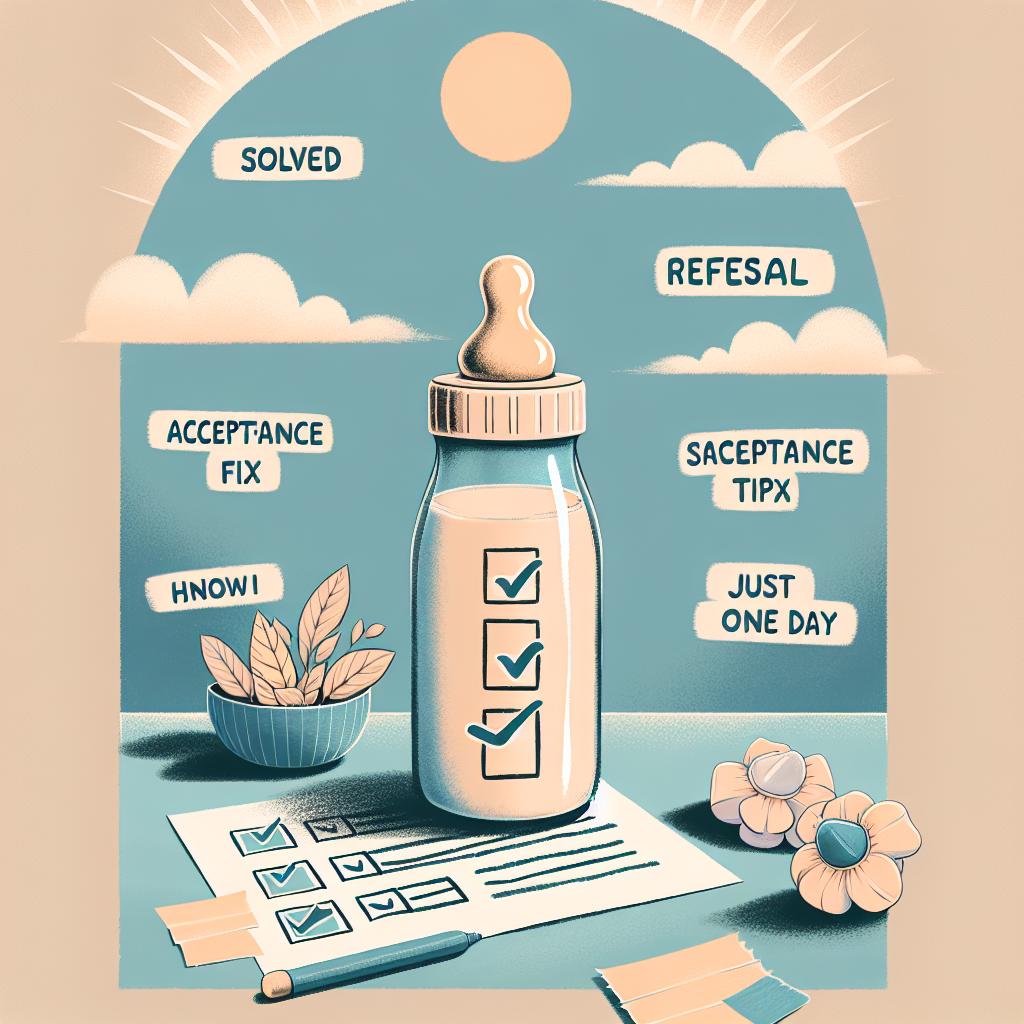Understanding Bottle Refusal in Babies
Welcoming a new baby into the world brings with it overwhelming joy, but also a multitude of challenges – one of which can often be feeding. One issue many new mothers face is that of bottle refusal.
If you’re finding yourself in need of a good bottle refusal fix, you’re not alone. Countless parents worldwide face this struggle every day. The good news? It’s entirely possible and within reach to understand and reverse this issue. With a bit of patience, care, and the right strategies, you can have your baby accepting the bottle like a pro in no time.
Why Does Bottle Refusal Happen?
The reasons behind your baby’s refusal to take a bottle can vary greatly. It’s important to remember that each baby is unique, and what might tick for one might not work for another. That said, some common reasons could include:
- Change in taste or texture: If you’ve recently switched from breastmilk to formula, your baby might be resisting due to the change in taste or texture.
- Feeding technique: Your baby may prefer a particular feeding posture or may be uncomfortable with the way the bottle is offered.
- Bottle nipple preference: Sometimes the issue lies with the nipple of the bottle. Some babies might prefer a certain nipple type over others.
- Separation anxiety: If your baby associates feeding time with closeness to you, they might resist taking a bottle from others.
Effective Bottle Refusal Fixes
Once you’ve identified potential reasons behind the bottle refusal, you can start implementing solutions for the same. Here are a few tried and tested acceptance tips that you can consider.
- Switch up the bottle: Consider trying different bottles and nipples. Your baby might find a particular type more comfortable or easy to latch onto. Check out this guide for more information on choosing the right bottle.
- Change your feeding technique: Try feeding your baby in different positions or environments. Some babies prefer being upright, while others might enjoy a more reclined position.
- Involve others in feeding: If your baby associates feeding with you and resists a bottle from others, try involving your partner or a family member in feeding sessions.
- Stay patient and positive: It’s crucial not to force the bottle onto your baby, as this can create a more resistant attitude. Instead, stay patient and try to make feeding a positive experience for your little one.
Solved Bottle Refusal: Success Stories
Many parents have successfully navigated the tricky path of bottle refusal and come out smiling on the other side. These stories from the online parenting community bring hope, tips, and most importantly, the understanding that you’re not alone in this journey. Taking inspiration from their approaches and solutions can be invaluable in your situation.
Your baby’s feeding journey is unique, and while bottle refusal can be a frustrating hurdle, it’s important to remember that patience and understanding are key. With the right tools, solutions, and support, it’s entirely possible to navigate this stage with ease. You and your baby are on this journey together, and every step you take is one step closer to a happy, healthy feeding experience.
What The Researchers Say
Researchers have studied extensively on the issue of bottle refusal. Multiple factors can contribute to this problem, including psychological issues like separation anxiety or more physiological factors like the taste or texture change of breastmilk to formula. Overcoming this issue necessitates understanding the unique needs and preferences of your baby, as well as maintaining patience and optimism during the feeding process.
The Relationship Between Bottle Refusal and Sleep
There’s a lesser-known connection between a baby’s sleep patterns and their feeding habits. Some babies may undergo sleep regression, leading to frequent awakenings during the night and refusal to drink from the bottle. Discerning this link can help parents better address the issue of bottle refusal. Improving your baby’s sleep patterns can effectively promote a healthier feeding behavior.
How to Handle a Feeding Aversion
In some cases, bottle refusal could be a sign of a deeper feeding aversion problem. Dealing with feeding aversion in babies involves keen understanding and persistence. Check out this informative article for tried-and-true techniques that helped many parents remedy this issue. You should always consult with a pediatrician if your baby is showing signs of a feeding aversion.
On Dealing with Excess Lipase in Breastmilk
Sometimes, bottle refusal may be a signal from your baby that the content of the milk is bothering them. Excess lipase can make breastmilk taste sour after being stored, this can cause a baby to refuse the bottle. There are methods to overcome this lactation problem. Check out this informative piece to understand how to resolve excess lipase in breastmilk.
Summing Up
In conclusion, bottle refusal is a common hiccup in the early months of parenting. But, with the correct approach and a lot of patience, this issue can be navigated seamlessly. Remember to consider your baby’s unique needs, changing your approach as required and always keeping a positive outlook.
Beyond The Bottle
While bottle refusal in babies can indeed push the patience limit of many new and seasoned parents, remember that this phase is just a part of a much grander journey. The best way forward involves patience,
understanding, and plenty of support!

